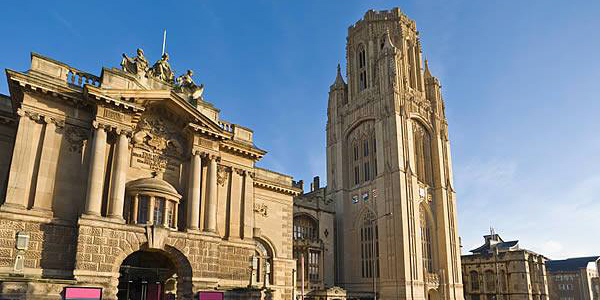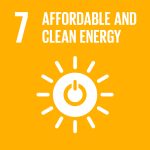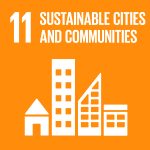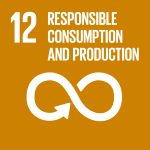Esta web utiliza cookies para que podamos ofrecerte la mejor experiencia de usuario posible. La información de las cookies se almacena en tu navegador y realiza funciones tales como reconocerte cuando vuelves a nuestra web o ayudar a nuestro equipo a comprender qué secciones de la web encuentras más interesantes y útiles.
Embracing interdisciplinarity: The Sustainable Development Goals as a route to cross-disciplinary dialogue in the classroom
Description
Institution
Organizations/areas of the university involved
Department of Computer Science; Faculty of Engineering; School of Chemistry; School of Geographical Sciences; Education Services; and others. University of Bristol
Country
United Kingdom
The University of Bristol’s ‘Sustainable Development’ open unit represents a constituent part of the innovative Bristol Futures curriculum, which is based on the provision of skills, awareness and – significantly – agency to undergraduate students at the University. Within this framework, the Sustainable Development unit has been developed by a multi-disciplinary teaching team, including academics from across the Faculty of Science, Faculty of Engineering, Faculty of Social Science & Law and the Faculty of Arts.
This optional unit, available to students across the institutions took the form of a) the online delivery of the core learning materials presented in the forms of tailored structured briefs, blog-like articles videos produced exclusively for this unit and b) six, two-hour compulsory workshops, in which the students are asked to engage in set challenges linked to the SDGs and work in interdisciplinary teams to develop holistic solutions.
From the beginnings of the planning, the Sustainable Development Goals were placed at the centre of both the structure of this unit’s delivery and the content and learning resources provided to the students – providing us with a valuable route to introduce the importance of interdisciplinary work early in a student’s undergraduate studies.
Our primary aim when developing this unit was to embed the Sustainable Development Goals – and wider sustainable development policy – into the curriculum for students across the University of Bristol. In doing so, we wanted to encourage students to both understand and embrace interdisciplinarity and systems thinking, teaching to ‘think’ beyond their disciplines, backgrounds and experience and understand that addressing global challenges requires collaboration across the traditional silos of academia and policy-making. To stimulate this engagement, we designed the unit to ensure that the Sustainable Development Goals covered are presented and discussed under five broad headings: Science and Understanding; Economics and Law; Equality and Justice; Individual and Organisational Behaviour Change; and Engineering and Innovation. Throughout, the content provided – as well as the group- and individual-work assignments encouraged students to both reflect upon their own contribution to the SDGs, the role of their home-discipline and the importance of engagement with other disciplines, communities and organisations in addressing global challenges.
Results and impact measured or expected
The unit’s first run attracted 250 students from across the University, resulting in a rich diversity of approaches, knowledges and backgrounds contributing to the development of a collective understanding of the SDGs. In subsequent years, this has increased to roughly 400. The workshops have been a joy, witnessing physicists, historians, engineers and lawyers collaborating to develop a wider understanding of the Sustainable Development Goals and how they can contribute to addressing contemporary global challenges.
Within these workshops, students have completed a number of active, problem-based tasks – including the designing of a mobile app to contribute to SDG 7, a participatory budgeting exercise centred on SDG 11 and the development of an advertising campaign to feed into SDG 12. In doing so, students have demonstrated both an impressive ability to work in interdisciplinary teams but also their potential in thinking creatively and holistically in how they – and their education – can contribute to the achievement of the SDGs.
Connection with the SDG framework
The content makes direct reference to the history of Sustainable Development and the current framework of SDGs. Within this content, the links between the SDGs and a number of overlapping global challenges are mapped and profiled, allowing students to see the significance of the SDGs in understanding the complexity of contemporary challenges.
Furthermore, students are asked to reflect upon the ties between their disciplines and particular SDGs –developing an understanding of how their time at University is intricately linked to both the SDGs and the complex global challenges faced. In a summative assignment, we provide a framework for students to understand the roles they can have and to see that they are not – and will not be – passive actors in achieving the SDGs. This encourages active reflection and emphasises students’ agency – be it through volunteering, professional engagement, and/or activism such as the climate strikes that coincided with unit.
Barriers and follow up
The primary barrier was translating traditional lectures into engaging filmed content, to reflect the “flipped classroom” approach to delivery. This was successfully mediated by presenting interview-style discussions with a multidisciplinary group of internal academic and external collaborators. This particular format offered discussion-style rather than a didactic approach so the material was more approachable for students from different subject backgrounds. In essence, students were invited to witness a conversation, rather than be “talked at”. With a dedicated support team and in-house film-maker, the media assets were developed in tandem with written content and aligned with the overarching pedagogical framework.
In line with our ambition for continuous improvement, the unit will continue to adapt and grow. We envision that new case studies and more refined content will meet the demand of our ever changing Global Challenges.
Education 4 SDG funciona gracias a WordPress




